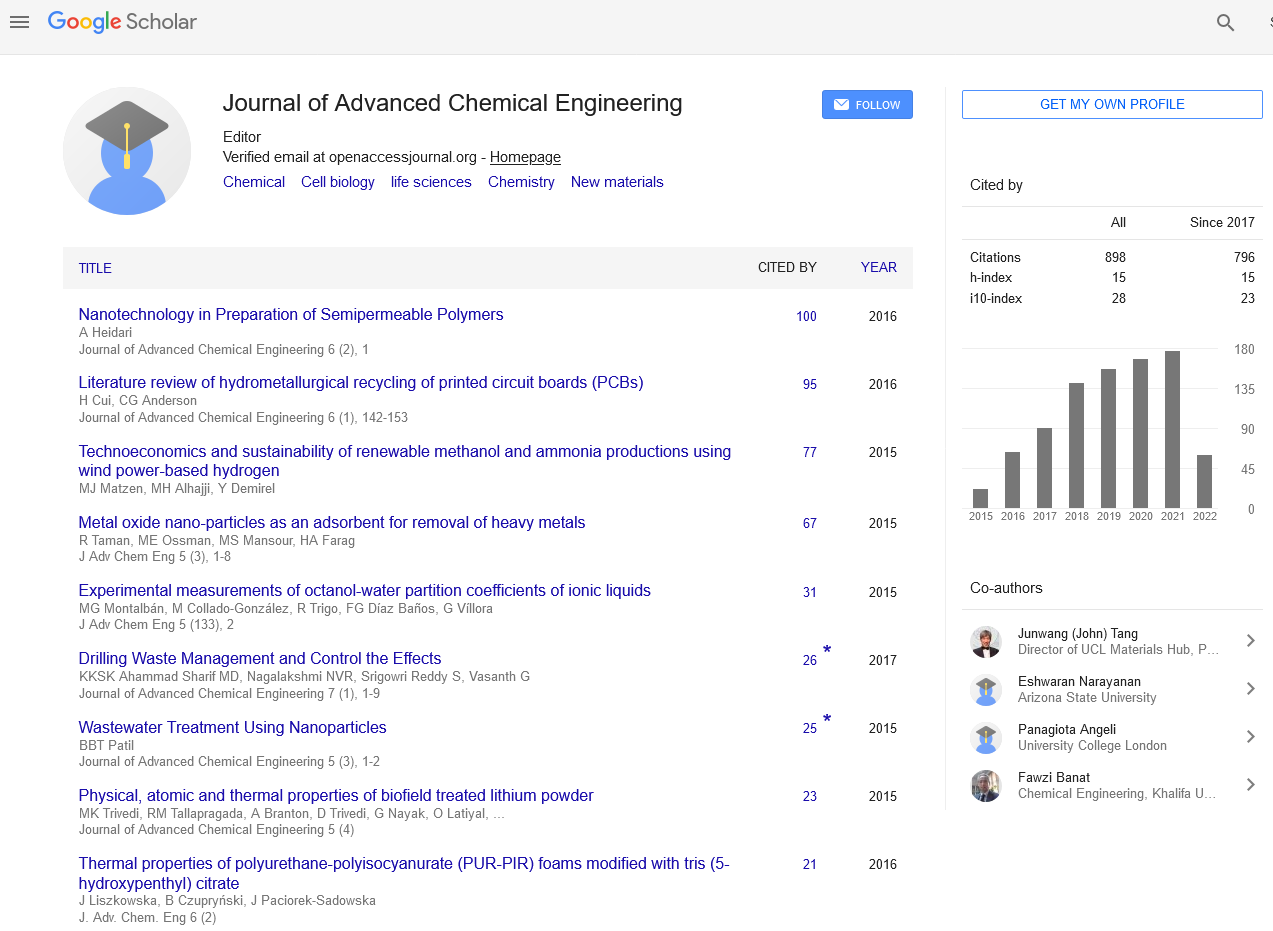Indexed In
- Open J Gate
- Genamics JournalSeek
- Smithers Rapra
- RefSeek
- Directory of Research Journal Indexing (DRJI)
- Hamdard University
- EBSCO A-Z
- OCLC- WorldCat
- Scholarsteer
- Publons
- Geneva Foundation for Medical Education and Research
- Google Scholar
Useful Links
Share This Page
Journal Flyer

Open Access Journals
- Agri and Aquaculture
- Biochemistry
- Bioinformatics & Systems Biology
- Business & Management
- Chemistry
- Clinical Sciences
- Engineering
- Food & Nutrition
- General Science
- Genetics & Molecular Biology
- Immunology & Microbiology
- Medical Sciences
- Neuroscience & Psychology
- Nursing & Health Care
- Pharmaceutical Sciences
Abstract
Biopolymers as sustainable raw material for textile industry: An opportunity or a challenge
Pavan Kumar Manvi
Use of polymer in household as well as in industrial applications is increasing day by day due to their unique properties. Majority of polymers is de-rived from petroleum oil, which also poses enormous environmental problems in terms of global warming and pollution. Depleting reserves of petroleum oil and strong fluctuations in the crude oil prices make the search of alternatives necessary. So-called biopolymers are polymeric materials, which are produced from renewable materials or are biodegradable or both. The use of biopolymers in polymer and textile industry not only reduces carbon footprint but also provides independency from petroleum oil. A transition from petroleum based resources to bio-based resources has seen as an opportunity. Despite increasing interest in the sustainable raw materials, a shift from petroleum based resources to bio-based resources is seen as a long awaiting milestone in the polymer industry. The challenges are associated not only with higher price than conventional polymers but also with the limited process ability and the inadequate properties. The development of biopolymers has been a long history in different generations of development. The biopolymers of first generation i.e. starch, cellulose etc. were directly extracted from the natural resources and implemented in different polymer processing routes. However, natural polymer in their raw form had enormous difficulties in the processing due to undesired polymer structure, morphology, lack of homogeneity and presence of impurities. An efficient solution was seen as depolymerizing biobased raw materials and using the clean monomers for polymer synthesis. This led to the second generation of biopolymer, so called synthesized biopolymers having desired molecular structure and tailored polypeptides i.e. polylactic acid. The modification in the structure of synthesized biopolymers is still a major topic of research and gaining a lot of attention. Despite, enormous potential of synthetic biopolymers, they are showing competition with food and feed. It seems challenging to fulfil the world polymer demand by synthesized bio-based polymers without endangering food and feed capabilities. Development of biopolymers from industrial, agricultural and household waste is seen as effective solution to fulfil world’s demand without endangering food demand. Development of polyhydroxyalka-noates from waste and thermoplastic polyurethane (partially) from carbon dioxide is seen as potential solution. Research group “Biopolymer” at Institut fur Textiltechnik of RWTH Aachen University is devoted to find out the potential of biopolymers in textile application, developing textile process chain for interdisciplinary application and aiming at turning challenge with biopolymers into an opportunity for textile industry.
Published Date: 2020-08-24; Received Date: 2019-11-13


